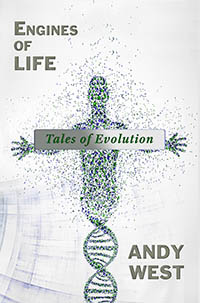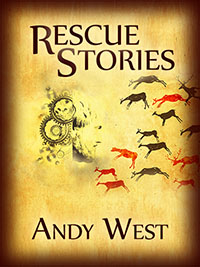What is a glosa and why should you care?
Glosas are a form of poetry that’s seeing something of a revival at the moment, particularly in Canada, and in no small part due to poet P.K. Page. James Harbeck recently described glosas as “jazz, improvisations on someone else’s theme” and I think he nails the essence of the glosa with that phrase. It’s a very fluid and flexible form, and that gives you the freedom to create something mind-blowing… but equally it gives you the freedom to crash and burn.
We’ll be bringing you a double treat soon. Dead to Rights: A Circularity of Glosas is a collection by Alain C. Dexter, and Dead Edit Redo is a thriller/ horror / time travel/ mystical prose novella by Elaine Stirling that tells Dexter’s story and the tale behind the 18 glosas in his collection.
Over to Alain for his explanation of glosas…
“The glosa, of which you will find eighteen in this book, originated in 12th century Spain. The verb, glosar, means both to gloss and to sum up. The glosero or glosera—female troubadours did exist—would pay tribute to master poets by “borrowing” four lines of their poetry. These served as the opening or crown stanza. The following four ten-line stanzas were crafted by the glosero; nine lines were his own, the tenth came from the opening quatrain. To blend the originating work with the new, the poet rhymed the end words of lines six and nine with the master poet’s tenth.
If my explanation scrambled your brain cells, don’t worry. My first experience with glosas seventeen years ago overthrew everything I believed about time, space, life, love, reality, potential, possibility and truth. And I’d only written one!
Fortunately, reading glosas is not nearly so traumatic. They deliver like a compact short story, in stereo; they’re a poetic high energy drink, double shot espresso of verse. You can read one glosa and read it again several times to experience a kaleidoscope effect of something new with each reread. Or you can take in a whole wallop of them and begin to sense the underlying structure that gives the glosa its . . . well, glisten.”
—Extract from Dead to Rights: A Circularity of Glosas, a forthcoming collection from Greyhart Press by Alain C. Dexter, Ph.D. Heteronymic Professor of Poetry, Brougham College.
Of course, Alain is not the only person to write glosas. Other leading exponents include Elaine Stirling and Gavriel Navarro (who is himself a part of story!) And check the post on James Harbeck’s blog I mentioned earlier for some of his examples.











































Pingback: A Circularity of Glosas « Oceantics
Sounds Post-Modern with a splash of pastiche! Any relation to flash fiction? That was kind of big in the 90’s. Hey, when did Greyhart Press get all academic? I love it!
I guess so. Flash fiction? Well… I guess so. I read the collection of glosas, then the novella. And then, having learned much more about why those specific glosas were written in the way they were, I went back and re-read the glosas. So it’s like flash fiction in that you can dip into the collection at will and read just one. Can’t really do that the same way with a collection of 20-page+ short stories.
SOunds interesting… I may have to have a go at this myself. And more books to buy, what more could I ask for 🙂
Quite 🙂
Pingback: Teasers… Dead Edit Redo/ Dead to Rights | Greyhart Press
Pingback: Real Life, Creative Life, Double Life? | Two Voices, One Song
Pingback: Sneek peek of 2013 release: Dead to Rights: a circularity of glosas | Greyhart Press
I had the extreme pleasure and good fortune of spending the evening in the company of healthy droughts of Polish vodka shared with and in the most grand company of the esteemed Alain C. Dexter, Ph.D. Heteronymic Professor of Poetry, Brougham College. As usual he was a great inspiration to commit a glosa of my own; I thank him for inspiring the following. He will have a collection of glosas out very soon (Dead to Rights: A Circularity of Glosas; https://greyhartpress.com/2012/11/20/a-circularity-of-glosas/) and I would encourage anyone with an interest in the form, or just in reading some damn good poetry to find a copy.
When I use the words of poets to write a glosa, a very intimate relationship reveals itself between the original poet and myself; almost telepathic, whether the poet is alive or deceased. I quite clearly hear the voice of the original poet and can only hope that my appropriation of their words does their original intent honor.
OF A CONTENTED MIND: A GLOSA
When all is done and said, in the end thus shall you find,
He most of all doth bathe in bliss that hath a quiet mind:
And, clear from worldly cares, to deem can be content
The sweetest time in all his life in thinking to be spent.
Lord Vaux wrote this during Queen Mary’s reign. The following lines by Vaux were first printed in The Paradise of Devices (1576).
Long and loud the voices of truth speak up
Out, across the warp and weft of ages
weaving a tapestry that frames unwalled
time with a border in the center that tells
the tale of skilled warriors whose deeds
speak loudly from silence of dark blind
unerring certitude with voices loud enough
to echo true, with voices long enough to shine
their light into all knots that us together bind–
When all is done and said, in the end thus shall you find,
Morning and evening a single sphere is shining bright
same orb changes not its countenance with the time of day
simply twinkles bright in darkened sky, passes with serenity
invisible during day somewhere over head then in sight at night
it travels in but a single direction, no mater how it seems to us
deep lessons from its wanderings the wise will surely find;
when thought lets go of illusions’ mirrors, dissolve all opposites,
wall and tapestry become a single window and a
single bright light shines when all gnarls of duality unwind
He most of all doth bathe in bliss that hath a quiet mind:
Creators and destroyers often in the same guise come
knocking on both sides of Janus smiles and with their
diverse charms demand we take some or other decision–
we choose as best we’re able between the better and
the worse hoping to preserve original intent, though just
what that may be we are in perpetual disagreement bent
against all odds there can be no number smaller than two
but this I know, don’t ask me how, I followed where it sent
And, clear from worldly cares, to deem can be content
sea and shore can not separated be, nor can in and out
pendulum swings both ways, we can hang on the wait
at each tide end or be the same point from which both
swing watching ourselves be supreme creators of analogies
describing first moments of creation, that first thing we thought
mimicked processes within showing from where we were sent
to experience our selves as supreme creators of analogies
that ultimately are most valid left unsung and unspoken, and a nod
and a smile among us acknowledges it is to the same place we went
The sweetest time in all his life in thinking to be spent.
When all is done and said, in the end thus shall you find,
He most of all doth bathe in bliss that hath a quiet mind:
And, clear from worldly cares, to deem can be content
The sweetest time in all his life in thinking to be spent.
D. Russel Micnhimer 12-25-2012
Wow! That’s excellent. The glosa might not be a new idea but it’s a meme that seems to be sweeping the world faster than the norovirus.
I think Alain C. Dexter is an important part of the explanation for the glosa’s popularity. I confess to sharing a few glasses of warm krupnick vodka with him on occasion.
Tim